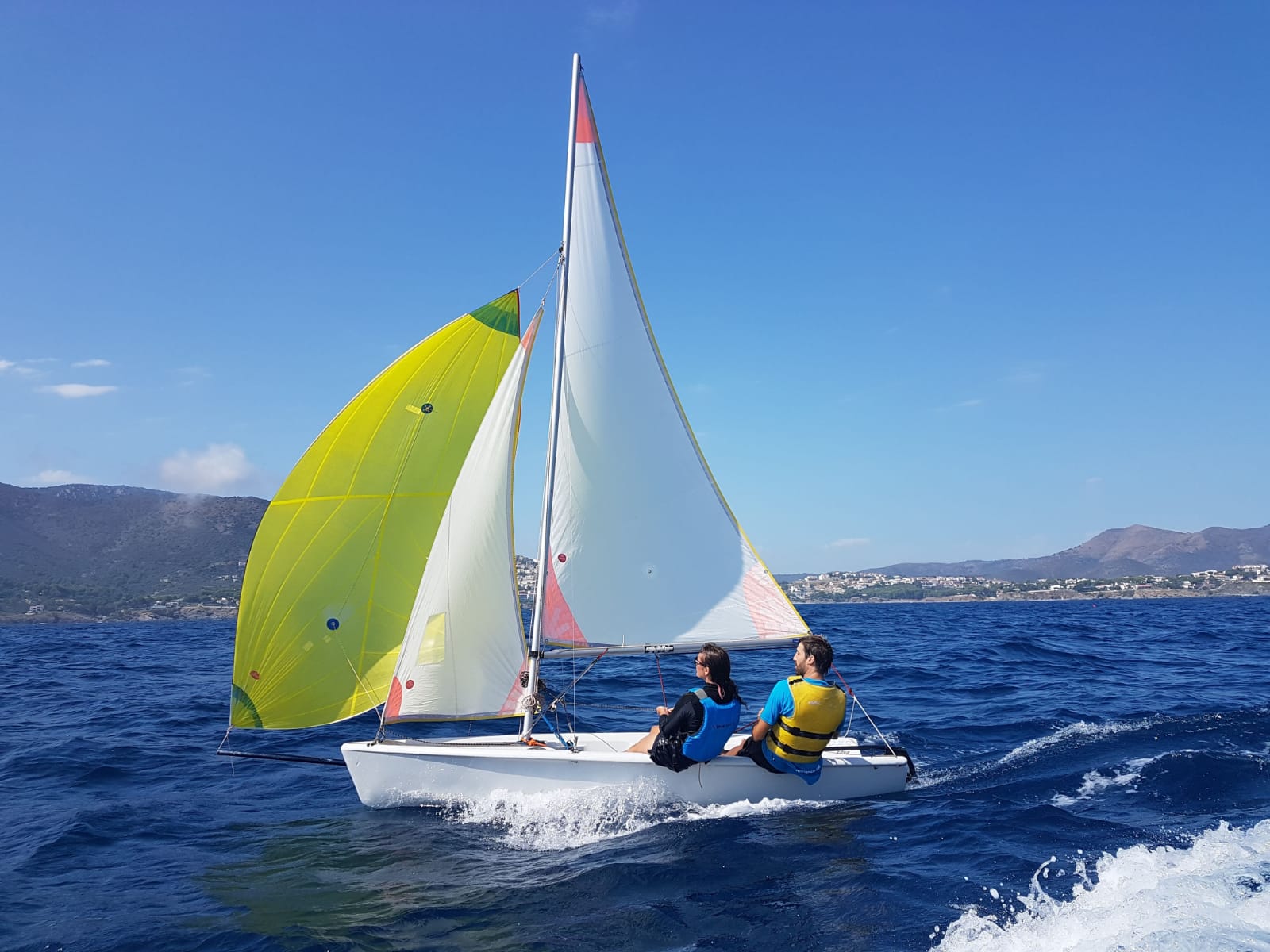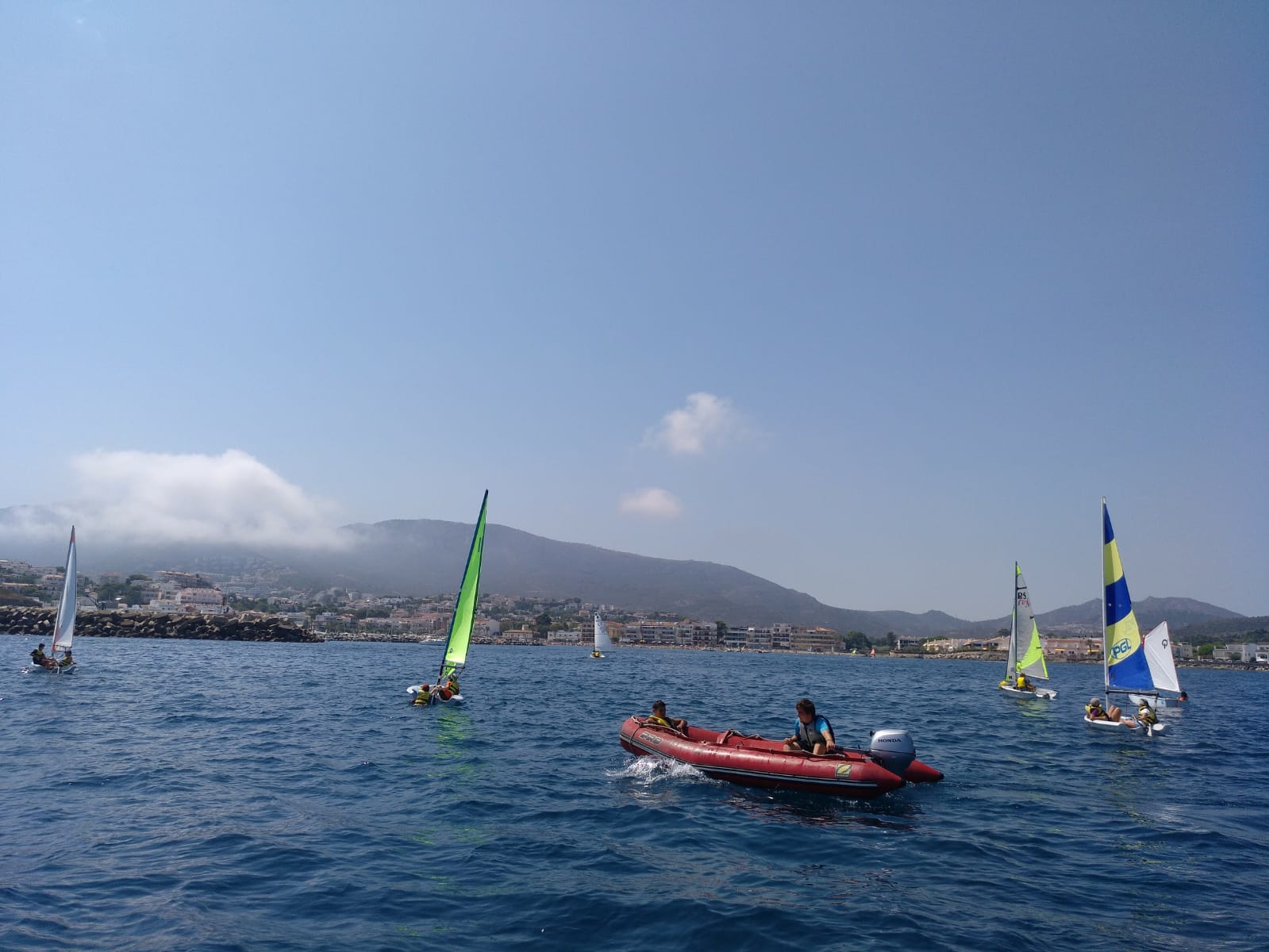Sailing
The wide variety of sailing sports includes yachting, dinghy[1] sailing, windsurfing and kitesurfing.
The conclusion summarizes evidence of the possible benefits of dinghy[1] and other types of sailing on the physical and mental health of people of different ages with various health conditions.

Conclusions are drawn from (i) a review of the existing literature, which is scarce, (ii) information gathered from specialized sailing websites where sailors share their perceptions about health benefits of sailing, and (iii) the knowledge of experienced sailing instructors who have been sailing and teaching dinghy[1] courses to beginners at Cap de Creus Natural Park for over 10 years. Seven sailing instructors answered nine open-ended questions regarding their perceptions of the potential effects of sailing on people’s health and well-being. Both healthy people and those with various medical conditions were taken into account.
The questionnaires provided first-hand information from experienced professionals on the potential links between sailing at sea and health and wellbeing. It is commonly thought that sailing is a highly favourable activity for the wellbeing of both the able-bodied and those with physical disabilities or mental illness. However, further investigation is needed to understand the true benefits of sailing for health and wellbeing. The few scientific studies published reveal that the quality of life of both healthy people and patients with various medical conditions, which have both physical aspects (including pain) and mental/emotional/psychological aspects, improve after a sailing course. However, these studies have thrown up many questions in need of further research.
Mental health
The literature reviewed demonstrates that sailing benefits people’s mental health. It seems that the aquatic environment acts as stimuli for perception and integration, and improves people’s quality of life by increasing their self-esteem and general health. Studies also suggest that sailing is vital for rehabilitating people with disabilities. Increased general life quality of disabled children and adolescents who sail has also been proven. Results from the studies reviewed suggest that sailing has a positive impact on the general functioning and quality of life of patients diagnosed with severe mental illnesses, and that it improves their health. Evidence supports the idea that a rehabilitation program based on learning how to sail may motivate patients with mental illnesses or disorders and make standard rehabilitation procedures more effective. Sailing together with a crew significantly improves social functioning in people with severe psychosocial disabilities, compared to more traditional group psychosocial rehabilitation activities.
Studies suggest that dinghy sailing is particularly beneficial for the physiological health of children. Participating in sailing helps develop confidence and competence, and other key personal and interpersonal skills such as social interaction, problem-solving, decision-making, planning, concentration, resilience, communication, and leadership.
According to the information on various specialized sailing websites, there is the perception among practitioners that dinghy sailing lowers stress levels and brings peace of mind and evokes calm. Sailing improves agility and concentration, and also enhances a person’s coping skills, and ability to deal with multiple tasks simultaneously. The websites also report that sailing can help people learn how to communicate effectively, and combat addictions and anxiety. From personal experience, some sailors indicate that sailing can be highly therapeutic for treating both physical and mental health problems.
According to information gathered from interviews with sailing instructors at Cap de Creus Natural Park using an open-ended questionnaire, sailing requires concentration and helps build emotional balance. It enables people to connect with nature, and helps develop communication and collaboration skills in a creative and natural way. It brings a feeling of freedom, a sense of disconnection, self-control, reflection, and brings people into contact with nature. Sailing appears to stimulate people’s concentration as it is a complex and attention absorbing activity which makes people disconnect from the rest of the world. The instructors interviewed believe that sailing brings feelings of high satisfaction and a knowledge of the natural environment. Furthermore, sailing brings health benefits to children suffering from disorders such as attention deficit disorder (ADD) and Down’s syndrome, and older people with Parkinson's disease.

Physical health
Few studies have been published on adaptive sailing or the positive effects of dinghy sailing on physical health. A case study suggests that independent sailing for people with tetraplegia can potentially improve mobility, mood, social role functions, control over injury, feelings of depression, community reintegration, resilience, and access to natural environments. Another study carried out on children and young people with a variety of disabilities reports significant improvement in trunk stability and improvement in the quality of life after the sailing course. The whole program, including the virtual/technological program and sailing courses, improved not only physical aspects (including pain), but also mental/emotional/psychological aspects of illnesses. It seems that sailing improves the overall physical and social well-being of disabled children and adolescents, and could be used as an integral part of their rehabilitation program.
Opinions on specialized websites point out that sailing improves muscle strength and endurance, as well as cardiovascular health as it reduces the risk of obesity, hypertension, and other heart conditions. It also helps improve flexibility, agility and concentration, and enhances a person’s ability to concentrate.
The perceptions of the sailing instructors interviewed complement, and partly coincide with, the results found in scientific literature and opinions on specialized websites. Sailing instructors’ answers to the questionnaire reveal that dinghy sailing engages the whole body, develops balance and agility, as well as improving explosive force and building long-term resistance. The muscles of the whole body are in action, particularly legs, abdominals and arms. Sailing at competition level enhances skills related to precision and perfectionism, and improves general mobility and coordination.
Despite these results, the full range of effects of dinghy sailing at sea are not fully understood. Many questions remain unanswered, and further research is needed to provide insights into this matter.
[1] Dinghy sailing is the activity of sailing small boats using various skills and techniques.
[2] According to the Disability Services Act (1993), a disability is any continuing condition attributable to an intellectual, psychiatric, cognitive, neurological, sensory or physical impairment, or a combination of those impairments which results in substantially reduced capacity of the person for communication, social interaction, learning or mobility and a need for continuing support services.


















